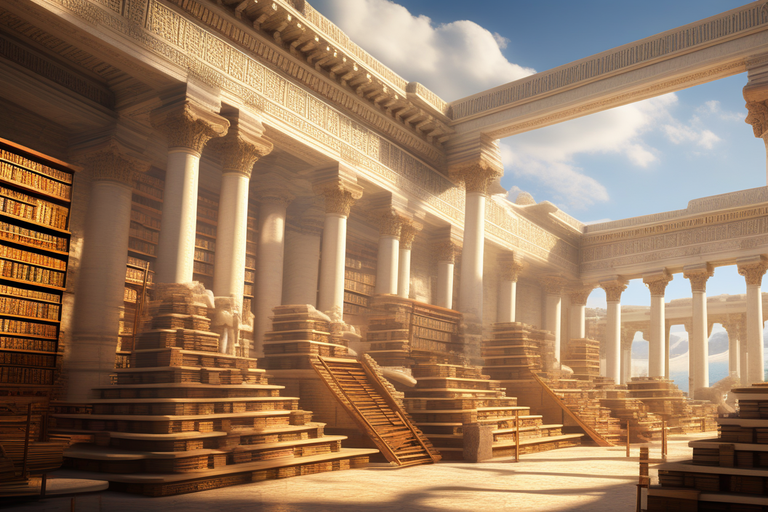The Ancient Library of Alexandria: A Beacon of Wisdom, Philosophy, and Science

In the annals of history, few institutions have captured the imagination and evoked the sense of loss as profoundly as the Library of Alexandria. Situated in the heart of ancient Egypt's bustling port city of Alexandria, this monumental library was not merely a repository of scrolls but a vibrant center of wisdom, philosophy, and scientific inquiry.
Founded in the early 3rd century BCE under the Ptolemaic dynasty, the Library of Alexandria was part of a larger institution called the Mouseion, which was dedicated to the Muses, the Greek goddesses of the arts. This grand library, envisioned by Ptolemy I Soter and expanded under his son Ptolemy II, sought to house all the world's knowledge. It was an embodiment of the Hellenistic age's intellectual curiosity and ambition.
The library attracted scholars, poets, philosophers, and scientists from all corners of the known world. It was a melting pot of ideas and cultures, where Greek, Egyptian, Persian, Indian, and many other cultures mingled and exchanged knowledge. This multicultural aspect was not just incidental but fundamental to the library's purpose: to serve as a universal center for learning and scholarship.
Philosophically, the library was a crucible for thought. It housed the works of Plato, Aristotle, and other great philosophers, fostering an environment where philosophical ideas could be debated and developed. The library's scholars, like Euclid in mathematics and Eratosthenes in geography, made groundbreaking contributions to their fields. Their work laid the foundations for many modern disciplines.
The legacy of the Library of Alexandria is profound. It symbolizes the golden age of ancient scholarship and the idea that knowledge and culture should be shared and preserved for the benefit of all humanity. The modern world, with its digital libraries and global access to information, still draws inspiration from this ancient beacon of knowledge.
In the end, the Library of Alexandria serves as a poignant reminder of both the incredible potential of human inquiry and the fragility of cultural and intellectual achievements. Its story encourages us to cherish and protect the repositories of human knowledge and to continue the pursuit of wisdom, philosophy, and science with the same fervor as the ancient scholars of Alexandria.
The Ancient Library of Alexandria likely held a diverse collection of spiritual texts, reflecting the multicultural and inclusive ethos of the institution. Given its mission to encompass all human knowledge, the library probably housed various religious and spiritual manuscripts from different cultures and beliefs, including Egyptian, Greek, Persian, and possibly early Christian and Jewish texts. While primarily known for its contributions to philosophy, science, and the arts, the presence of such spiritual literature would have added to the library's rich tapestry of wisdom and influenced the intellectual and religious discourse of the time.
The demise of the Library of Alexandria is shrouded in mystery and tragedy. Regardless of the exact cause, the loss of the library was an irreplaceable blow to human knowledge.
